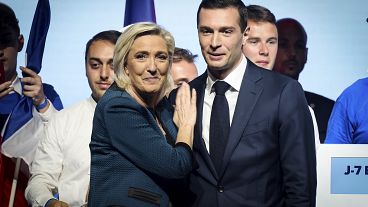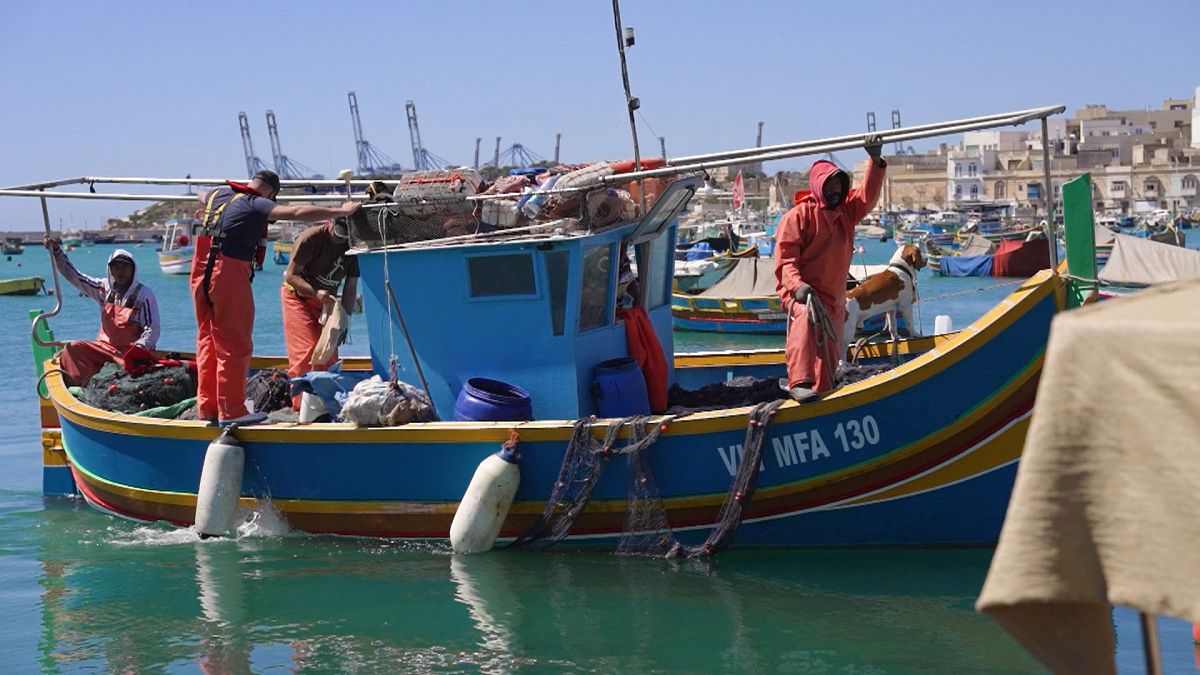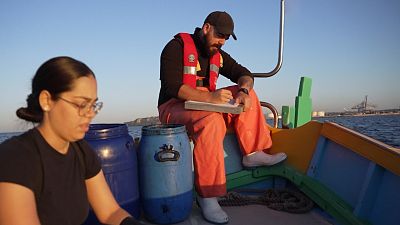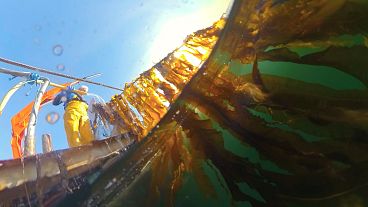The fishing sector accounts for just 1% of Malta's GDP and employs 1000 fishers. But with fishing deeply linked to the nation's identity, collaboration between Maltese fishers and scientists is helping to shape the growth of the fishing sector and future of Malta's marine ecosystem.
It’s early morning in Malta, the small EU Member state nestled in the Mediterranean Sea. Onboard a traditional fishing boat are three special guests: Kelly, Luca, and Frank, all working for Aquatic Resources Malta, or ARM.
This research unit of the Maltese Public Department of fisheries and Aquaculture has a crucial mission - to provide policymakers with accurate data on the health of the ocean.
"I work with a fantastic team of biologists and field observers, and together we undertake all of the data collection pertaining to the EU obligations," says one of them, Luca.
"Today, we're on an onboard observation, which is one of our routine observation efforts where we get the opportunity to go out onboard with fishermen and take measurements of what they catch, both fish that they intend to land and bycatch and discards" explains Luca.
His colleague Kelly at this point comes in. This is the best part of the job for her.
"Because you basically get to see and work with the fishers themselves, and you get to see the full fishing industry," says Kelly.
Scientific observers, the backbone of EU Fisheries Data Collection
The fishing regulations governing Europe's waters might be crafted in distant offices, but the knowledge the teams rely on, starts out at sea, with scientific observers.
These men and women are the backbone of the EU Fisheries Data Collection.
As the crew hauls in their catches, the scientists observe, analyse, and record basic biological data.
This data, compiled at the EU level under a multiannual fisheries data collection, will not just guide the work of policymakers on fish stocks and resources.
It will also serve as a basis to reinforce the socioeconomic pillar of the fishing sector, according to Alicia Bugeja, Malta's junior minister for Fisheries and Aquaculture.
"I really believe in the need of balancing the environmental, the social, and the economic pillars when it comes to projecting policies for the sector," says Bugela.
Malta's fishing industry
The fishing sector accounts for just 1% of Malta's GDP and employs 1000 fishers.
But with fishing deeply linked to the nation's identity, a collaboration between Maltese fishers and scientists is helping to shape the growth of the fishing sector and future of Malta's marine ecosystem.
"I believe that science informs our decision-making. So you need data to be able to predict the future" Bugeja says.
"There has been quite a good representative amount of scientists boarding different vessels, both trawlers and also trammel netters and long liners, which makes data collection quite representative".
Onboard observations are just one method scientists use to study the fishing industry.
At 4:00 a.m., the bell rings, signaling the start of the Maltese fish auction.
Buyers eagerly compete for the finest catches that will end up on dinner plates across the island.
However,** Frank Farrugia, an officer at Aquatic Resources Malta is here for a different reason.
"As part of the data collection multiannual plan, we have a budget from where we can buy the fish. Then, the fish bought from here is what we are going to process at our laboratories. They are biometric samples: mainly length, weight, sex, and maturity".
Some of the fish that arrive at the offices of Aquatic Resources Malta around the same time as Frank’s colleagues include swordfish and dolphins.
The challenging task then begins.
The fish are meticulously dissected to study their biological parameters, marking the first step in a comprehensive data collection process that will ultimately reach the European Commission.
Maltese fishers face several issues
Like in many places around the Mediterranean, Maltese fishermen face several issues like climate change, pollution, stock depletion, and intense competition.
The small-scale nature of their activity renders these challenges even more daunting.
Alicia Bugeja believes that's because there has not been a focus on how to cater to the diversity and heterogeneity of fishers, especially the small-scale ones.
This opinion is shared by the scientists onboard fishing vessels, who help foster trust between fishers and policy-makers.
"It is very important that we have a good working relationship with fishermen and, at the end of the day, their interests are our own interests. If the sea isn’t doing well, we want to know" says Luca.
"Because if we can figure out and identify just where things seem to be struggling, we can raise this with policymakers and decision-makers so that they are more equipped to take proper course of action in order to try and protect the sea in the interest of the fishermen".
As long as the health of the oceans remains in jeopardy, the scientific work of Frank, Luca, and Kelly will be essential in addressing this problem and shaping a shared vision for the future of the marine ecosystem.















